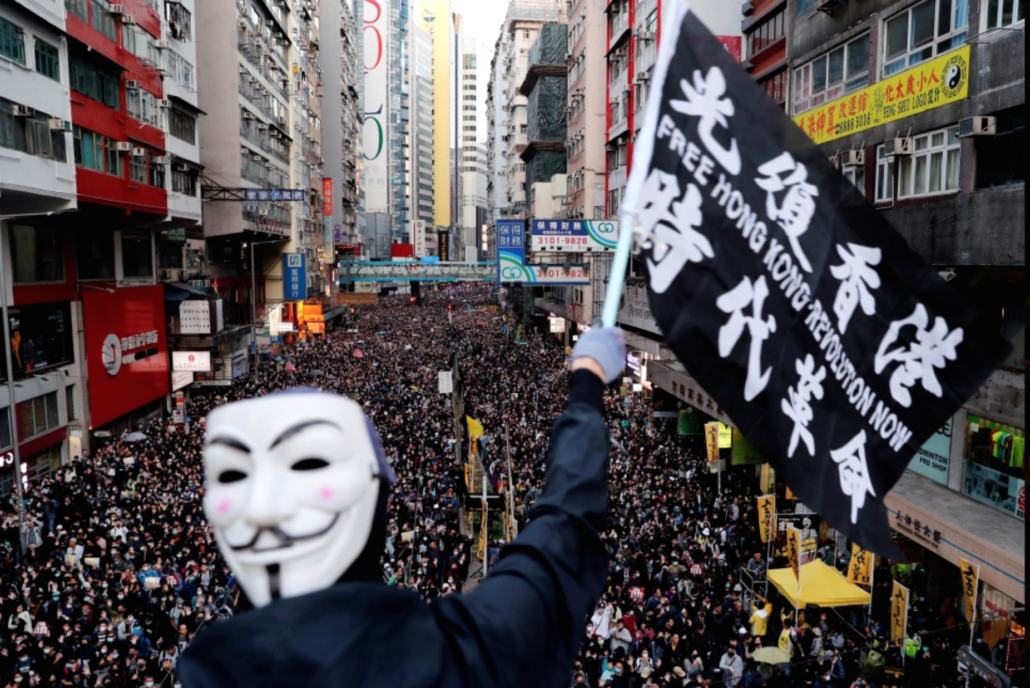
China’s new national security law for Hong Kong brings in massive consequences for the city’s political freedoms.
This law criminalizes “acts of secession, subversion of state power, terrorist activities, and collusion with foreign or external forces to endanger national security.”
Beijing passed this law via closed-door meetings which did not even include Hong Kong’s leader, Carrie Lam.
Marking 23 years of Chinese rule and less than 24 hours under the new security law, thousands of Hong Konger’s took to the streets while defying a police ban.
Although the protests were not as huge as the size of Hong Kong’s previous continuous protests, there were disruptions in at least four districts causing a clash between thousands of police officers and protestors.
According to police reports, 370 Hong Kongers were arrested on Wednesday, which included a 15-year-old girl and 10 people under the new national security law.
A Hong Kong government spokesman stated, “some people possessed and waved flags and printed materials containing the words of ‘Hong Kong independence,’ and chanted slogans of ‘Hong Kong independence’.”
Police responded to the protests by firing pepper spray, kettling protesters and using water cannon.
The clash resulted in water cannons being used against journalists. According to the police, several officers were injured by protestors, leading to one officer being stabbed in the arm.
The severe nature of the law resulted in political parties disbanding, people clearing their social media and chat history, and businesses removing their previous support for the protest movement.
Lawrence Lau, a protestor, barrister, and district councillor said, “I’m very afraid, but I’m still here.”
One of the female protesters stated that Hong Kongers will now use VPN and secure apps more often.
Deputy director of the Hong Kong and Macao Affairs Office of China’s State Council, Zhang Xiaoming, said that one of the most controversial issues of the new security law implemented by China is that suspects prosecuted by Chinese agents in Hong Kong will be now tried to the mainland China.
This law permits the extradition of Hong Kong residents across the border. This was the very reason why protests erupted in Hong Kong in summer of 2019.




